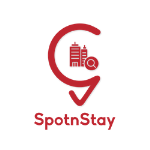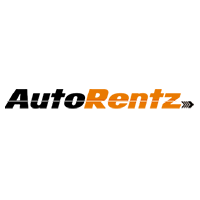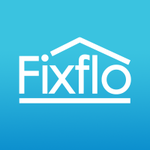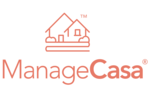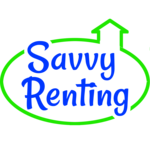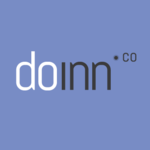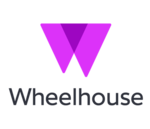Yes, most rental software can be accessed from numerous devices and platforms. This means that the software can be used on any computer, tablet, or smartphone, regardless of operating system. This provides simplicity and flexibility for rental firms because their employees may access the program from any device or location. This feature also enables seamless collaboration and real-time updates, which improves the rental business's overall efficiency and productivity.
List of 20 Best Rental Software
Rentler Landlord Software solution for hassle-free property management. With our user-friendly platform, you can effortlessly list your properties, screen potential tenants, and manage payments. Say goodbye to complicated rental processes and hello t...Read More Rentler Landlord Software
Barefoot Agent solution for managing your vacation rentals. Our intuitive tools and seamless integrations make it easy to run your operations, increase bookings, and enhance guest experiences. Trust our expertise to effortlessly elevate your business...Read More Barefoot Agent
InTempo Rental is a highly advanced rental software that caters to the needs of Enterprises, SMEs, and StartUps. Our user-friendly web and Android solution provides a comprehensive range of features, such as Billing & Invoicing, Contract and Inspecti...Read More InTempo Rental
-------------------- WebCheckout - a leading equipment reservation and asset management solution designed to streamline workflows and increase productivity across various industries. Backed by over 25 years of proven success, this software ca...Read More WebCheckout
SpotnStay is a, Airbnb-inspired solution designed to cater to the unique needs of startups in the vacation rental booking industry. Our advanced booking software is the perfect fit for all types of businesses. Share your venture details with us and g...Read More SpotnStay
Autorentz, created by Pagematics, is solution for managing your vehicle rental business. This software streamlines all aspects of your operations, giving you complete control and improving efficiency. With Autorentz, you can easily handle your fleet...Read More Autorentz
Looking for a solution for efficient property management? Look no further than Rabbu. This advanced software offers real-time analytics, automated guest communication, and smooth booking integration. Its user-friendly interface and robust reporting f...Read More Rabbu
Discover SuiteSpot is a property management software that will revolutionize your business. Say goodbye to wasted time and expenses with our centralized project tracking, approval processes, and reporting system. With SuiteSpot, you can streamline ca...Read More SuiteSpot
Property Organizer, our all-in-one solution for managing property information. This powerful software simplifies tasks by providing a comprehensive dashboard for easy access to inspection reports and asset management. With its user-friendly interface...Read More Property Organizer
Landlord Studio is a property management solution, providing landlords with powerful tools for tenant screening, rent collection, and maintenance tracking. Its intuitive interface and cross-device compatibility make it easy for landlords to efficient...Read More Landlord Studio
Rentec Direct is a highly acclaimed cloud-based property management software that offers unparalleled accessibility and support for landlords and managers of all portfolio sizes. With a proven track record among thousands of satisfied users, this sol...Read More Rentec Direct
EQUIPR Allocate is solution for effective scheduling. Our software carefully matches the ideal plant, equipment, and resources to each job and location, preventing costly downtime and ensuring top-notch Operated Plant & Mobile Crane Hire services. Wi...Read More EQUIPR Allocate
Fixflo Lettings is aproperty management software designed to simplify the process of managing repairs and maintenance for letting agents. With its effective communication tools, this comprehensive solution minimizes expenses and enhances the overall...Read More Fixflo Lettings
ManageCasa is a property management software for HOA and rental property managers. Our platform streamlines tasks like maintenance and accounting, saving you time and increasing tenant satisfaction. With user-friendly features and powerful integratio...Read More ManageCasa
SavvyRenting - an integrated property management solution that streamlines your daily tasks. From automated rent collection to maintenance tracking and tenant communication, this software saves time and reduces stress. With improved tenant satisfacti...Read More SavvyRenting
Doinn is a and efficient solution designed for property managers and cleaning companies. With its intuitive platform, users can enhance productivity, maintain high-quality standards, and easily track real-time data. Say goodbye to manual tasks and le...Read More Doinn
Wheelhouse Pricing is a solution created specifically for modern hospitality businesses. This advanced platform utilizes data-driven techniques to optimize revenue and provides unmatched control and insights for various portfolios. Take your pricing...Read More Wheelhouse Pricing
Tenant Ledger is property management solution that offers a user-friendly and efficient way to collect rent, communicate with tenants, and handle day-to-day tasks. Our platform is secure and cloud-based, giving you the freedom to manage your properti...Read More Tenant Ledger
iRent is a property management software for landlords and property managers. Streamline your rental operations with automated rent collection, efficient maintenance tracking, and seamless tenant communication. Eliminate administrative headaches and e...Read More iRent
Avail is a property management solution designed for DIY landlords. Our platform offers a variety of features, including tenant screening, customizable leases, and rent collection, to simplify and streamline the management of your rental properties...Read More Avail
Learn More About Rental Software
- What Is Rental Software?
- What Are The Recent Trends In Rental Software?
- Benefits Of Using Rental Software
- Important Factors To Consider While Purchasing Rental Software?
- What Are The Key Features To Look For In Rental Software?
- Why Do Businesses Need Rental Software?
- How Much Time Is Required To Implement Rental Software?
- What Is The Level Of Customization Available In Rental Software?
- Which Industries Can Benefit The Most From Rental Software?
- Conclusion
What Is Rental Software?
Rental software is a technological solution that simplifies and automates the process of managing rental businesses and assets. It is a valuable resource for landlords, property managers, and businesses who rent out equipment, cars, or locations. The rental industry's growth has led to an increase in demand for dependable and effective rental software.
At its heart, rental software assists businesses in managing all aspects of the rental process, including inventory tracking and reservations, payment management, and customer communication. It provides a consolidated platform for all rental-related processes, reducing time and effort while improving accuracy and organization. Inventory management is a key element of rental software.
It enables users to track and change the availability of rental products, making it simple to manage numerous units of the same item and avoid duplicate reservations. This system also allows businesses to define rules and restrictions for various things, such as minimum rental period or maximum amount per customer. Another important feature of rental software is its reservation management features.
It allows businesses to accept and handle bookings online, which makes the booking process easier for customers. It also allows users to generate and submit quotations, determine rental rates, and accept online payments, expediting the renting process from beginning to end. In addition to inventory and reservation administration, rental software includes functions including rental contracts, customer management, and reporting. These capabilities enable businesses to keep track of rental agreements, client information, and financial data, making it simple to evaluate performance and make data-driven decisions.
What Are The Recent Trends In Rental Software?
Rental software is continually improving to meet the changing needs of the organizations and individuals that use it. In recent years, a few trends have evolved in the rental software business.
These changes have altered the way rental firms function and have shown to be advantageous to both rental companies and their clients.
1. Cloud-Based Solutions: One of the most significant changes in rental software is the transition to cloud-based solutions. This enables rental companies to keep their data and software on remote servers, making them available from anyone with an internet connection. This eliminates the requirement for on-site servers and allows for greater flexibility in managing rental operations. Furthermore, cloud-based software allows several people to access the system concurrently, making it easier for rental organizations to collaborate and expedite their procedures.
2. Mobile Applications: With the growing popularity of smartphones, rental software is now available in the form of mobile applications. This development has made it easier for rental enterprises to manage their operations on the go. They may now make reservations, manage inventory, and accept payments using their mobile devices. Meanwhile, mobile apps allow clients to make bookings and follow the status of their rentals, making the rental process more simple and efficient.
3. Integration With Online Marketplaces: Another trend in rental software is the incorporation of online markets like Airbnb and HomeAway. This interface enables rental firms to list their properties on various sites while managing bookings and payments from within their rental software. Because of the large user base of these online marketplaces, rental companies have been able to expand their reach and increase their bookings.
4. Implementation Of AI: With technological breakthroughs, rental software now incorporates artificial intelligence (AI) to simplify operations and improve overall user experience. AI-powered services, such as chatbots and virtual assistants, can help customers find the ideal rental and respond to their queries in real time. AI algorithms may also evaluate data to provide insights and recommendations for future rental decisions, allowing rental companies to make data-driven decisions and enhance their operations.
5. Increased Emphasis On Data Security: As data privacy and security concerns grow, rental software companies prioritize data protection. With increased awareness of data breaches and cyber dangers, rental software companies are adding cutting-edge security methods to protect their clients' sensitive information. This includes implementing encryption, two-factor authentication, and frequent security updates to protect consumer data.
Benefits Of Using Rental Software
Rental software has become the preferred solution for property managers, landlords, and rental agencies, offering an efficient and effective way to manage rental properties.
Here are some of the main advantages of using rental software.
1. Streamlines Property Management: With rental software, you can manage all elements of your rental properties from a single platform. Everything can be done effortlessly, including publishing vacancies, collecting rent, and recording maintenance needs. This not only saves time and effort, but also lowers the likelihood of errors.
2. Automates Chores: Rental software allows you to automate routine chores such as rent reminders, lease renewals, and maintenance plans. This not only saves time, but also guarantees that critical duties are not ignored or forgotten.
3. Improves Communication: Rental software includes built-in communication options that make it easy to keep in touch with tenants and owners. The software allows tenants to submit maintenance requests, make payments, and contact directly with the maintenance personnel, thereby enhancing communication efficiency.
4. Offers Financial Insights: Keeping track of income and expenses is essential in rental management. Rental software allows you to generate financial reports that provide a comprehensive picture of your cash flow, taxes, and rental property performance. This facilitates making educated judgments and identifying opportunities for development.
5. Improves Tenant Experience: Happy tenants result in higher retention rates, and rental software plays an important part in boosting tenant experience. From online rent payments to maintenance requests, tenants can easily handle anything through the program, making their renting experience more convenient.
6. Improves Efficiency And Productivity: Rental software removes manual and time-consuming operations, giving you more time to focus on critical duties. This improves efficiency and production, allowing you to manage additional properties while expanding your business.
7. Ensures Compliance: Rental software frequently includes built-in capabilities that help you comply with local and federal rules. To avoid legal complications, you can create legally binding lease agreements and track lease renewal dates.
8. Provides Flexibility And Accessibility: Rental software is typically cloud-based, so you may access it from anywhere with an internet connection. This allows you to manage properties on the go and resolve important concerns quickly.
Important Factors To Consider While Purchasing Rental Software?
When it comes to selecting the best leasing software for your business, there are a few key considerations.
Here are the main considerations that should direct your decision-making process:
1. Type Of Rental: The first and most important step is to identify the type of rental you are handling, whether it be equipment, vehicles, property, or something else. This will allow you to narrow down your choices and select software that is tailored to your exact requirements.
2. User-Friendly Interface: Rental software should be simple to navigate and use, especially for persons who are not technically sophisticated. Look for a platform with an easy-to-use interface that your employees can handle with minimal training.
3. Essential Features: Different rental software will have different features, therefore it's crucial to identify which ones are necessary for your company. Inventory management, online booking, payment processing, and reporting capabilities are all possible options.
4. Customization: Because every rental business is unique, it's critical to select software that can be tailored to your individual needs. This will allow you to streamline your leasing operations and increase overall efficiency.
5. Rental Agreements And Contracts: With proper rental software, you should be able to easily establish and maintain rental agreements. For a hassle-free renting experience, look for a platform that provides customisable templates and digital signature options.
6. Integration With Other Tools: If you already use other software or tools in your organization, think about renting software that can integrate with other systems. This will assist you to streamline your processes and reduce data entry.
7. Pricing: Rental software prices can vary widely, so you should examine your budget before making a purchase. Some platforms may use a subscription model, but others may require a one-time price. Look for software that provides a fair mix of functionality and affordability.
8. Customer Support: When investing in rental software, it is critical to select a company that provides dependable customer service. This ensures that any technical issues or inquiries are resolved as soon as possible, reducing business disruptions.
By taking these aspects into account, you may choose the rental software that best meets your company's requirements. Take the time to investigate and demo many possibilities before making a final selection to ensure you select the finest solution for your rental business.
What Are The Key Features To Look For In Rental Software?
Rental software has the potential to transform the rental market for both consumers and enterprises. With the appropriate software, you can streamline your processes, increase efficiency, and enhance the client experience. However, with so many rental software solutions available on the market, selecting the best one for your needs can be difficult.
To assist you in making an informed decision, below are the essential characteristics to look for in rental software:
1. Comprehensive Inventory Management: The first and most important feature to look for in rental software is the inventory management capabilities. The program should allow you to simply and precisely track your rental inventory, such as available products, reservations, and returns. It should also be able to manage many sites and provide real-time availability.
2. Adjustable Pricing And Booking choices: A decent rental software should provide adjustable pricing and booking choices to meet the diverse needs of its users. This could include daily, weekly, or monthly prices, as well as the flexibility to apply discounts and promotions. Furthermore, the booking procedure should be user-friendly and support online reservations to decrease the need for manual bookings.
3. Customer Management: Managing customers and their information is an important part of every rental business. Look for software that allows you to save and retrieve customer information, monitor their rental history, and connect with them via automated emails or notifications.
4. Online Payments: One key feature of renting software is its ability to safely process online payments. This not only saves time, but also reduces the possibility of human error and fraud. Ensure that the program interfaces with common payment gateways and supports numerous currencies.
5. Mobile Compatibility: In today's on-the-go environment, having rental software that works on mobile devices is essential. This allows you to run your business at any time and from any location, resulting in more seamless operations and improved customer service.
6. Analytics And Reporting: To track the performance of your rental business, you'll need extensive reporting and analytics capabilities. Look for software that provides detailed insights into your finances, inventory, and customer data, enabling you to make more educated decisions and improve your company plans.
7. Integrations: Your rental software should be able to link with other company tools and software you use, such as accounting or CRM. This eliminates the need for human data entry and lowers the risk of errors.
8. Customer Support: Installing new software can be difficult, especially for persons who are not technically skilled. As a result, it is critical to select a vendor who offers dependable customer support, such as training, onboarding, and continuing assistance.
Why Do Businesses Need Rental Software?
Rental software has become an indispensable tool for organizations of all sizes and industries. It provides a variety of features and benefits that simplify the renting process and assist organizations in efficiently managing their rental operations. First and foremost, rental software offers organizations a single platform for managing rental inventory, payments, and reservations. This eliminates the need for manual tracking and lowers the risk of human error.
Real-time inventory updates allow firms to quickly keep track of their available products and avoid double reservations. Furthermore, rental software includes invoicing and payment processing features, which make it easier for businesses to collect money from their clients. This not only saves time, but also ensures timely and correct payments, resulting in improved cash flow.
Another key benefit of rental software is the ability to streamline the rental process for both businesses and customers. Customers can use an online booking system to make reservations whenever they want, without having to contact the business directly. This not only improves client happiness but also gives businesses more time to focus on other areas.
Furthermore, rental software frequently includes reporting and analytics features that help organizations understand their rental performance. These insights can help you make more educated business decisions and discover areas for development. Furthermore, rental software is an excellent tool for organizing maintenance and repairs to rental assets.
It enables organizations to schedule and track maintenance chores, ensuring that their equipment is in optimal condition and avoiding costly repairs or replacements. Finally, leasing software is scalable, making it ideal for organizations of all sizes. As a company grows and expands its rental operations, the software can readily accommodate additional inventory and rising demand.
Overall, rental software is a crucial tool for organizations that want to streamline their rental operations, increase productivity, and improve customer happiness. With its numerous features and benefits, it is an excellent investment for any rental business.
How Much Time Is Required To Implement Rental Software?
The time necessary to implement rental software varies based on the software and your business's demands. The implementation procedure can last anything from a few weeks to many months. The initial step in deploying rental software is usually data migration. This entails transferring your current data, such as client information and rental inventory, to the new platform.
The time required for this process varies depending on the intricacy of your data and the software's capabilities. Next, the software must be configured to meet your company's specific requirements. This may include establishing several pricing tiers, renting policies, and reporting options. The time necessary for configuration varies substantially according to the size and complexity of your rental activities.
Training is a crucial part of the implementation process. Your team will need to be familiar with the new software and how to use it efficiently. This can take a few days or a few weeks, depending on the software vendor's training resources and your team members' technical abilities. Finally, the software is launched. This includes performing final testing, making any necessary tweaks, and confirming that all systems are integrated and working properly.
The length of this process will be determined by your team's efficiency and any potential obstacles that arise. Keep in mind that the rental software implementation process is ongoing. Your team may learn and find new features as you use the software, and you may need to make changes and updates over time. However, with proper planning and software vendor support, the initial deployment may be done in a fair amount of time, allowing you to streamline and improve your rental operations.
What Is The Level Of Customization Available In Rental Software?
Rental software can be customized to meet your specific business requirements. These options might range from simple to extensive, depending on the software provider's capabilities. To begin, most rental software allows you to customize the software's features and settings. This includes possibilities like selecting which fields to display, establishing unique leasing agreements, and configuring price structures.
These basic modification options are commonly found in most rental software packages. Moving on to more advanced customisation, certain rental software suppliers enable the creation of bespoke reports and dashboards. This enables you to track and analyze data related to your rental business, providing vital insights for making sound decisions.
Furthermore, some software may allow you to create custom connections and automations to improve your process and connect it to other corporate applications. Furthermore, there are rental software solutions that provide full white-labeling capabilities. This means that you may completely personalize the software with your own branding, giving it the appearance and feel of your own rental management system.
Overall, the level of customization available in rental software ranges from basic to extensive, so it is critical to select a solution that meets your specific business requirements. Consider the features and options offered by various suppliers to assess the level of customization required for your rental business.
Which Industries Can Benefit The Most From Rental Software?
Rental software is an invaluable resource for businesses across a wide range of sectors. Its features and capabilities make it a very useful tool for streamlining rental management operations and enhancing productivity.
Let's explore, we'll look at which sectors can profit the most from deploying rental software.
1. Event Management Industry: The event management sector relies largely on rental services for tables, chairs, tents, and audio-visual equipment. Rental software enables event management companies to quickly manage and track their equipment inventory, generate detailed bids for clients, and simply arrange deliveries and pick-ups. This enables them to manage many events concurrently, improve customer service, and save time and effort on manual activities.
2. Construction Industry: The construction business frequently rents out heavy equipment. Construction companies must maintain track of their equipment rentals, which range from excavators and bulldozers to cranes and concrete mixers, in order to keep up with projects, budgets, and upkeep. Rental software includes features like real-time inventory tracking, equipment utilization reports, and automated billing, which can help construction organizations improve equipment management and cut expenses.
3. Film & Production Industry. It is typical for production companies to get various sorts of equipment and props for shoots and sets. Rental software can make the process easier by allowing users to search for and reserve equipment, manage contracts and payments, and track rental dates. This not only saves time, but also ensures that the essential equipment is available at the proper time, resulting in efficient production processes.
4. The Party And Event Rental Industry: Party and event rental firms, like event management, require efficient inventory management to meet consumer demand. Rental software can assist them handle rental orders, monitor equipment availability, and generate rental revenue and return reports. Furthermore, features like online booking and payment choices can improve the consumer experience while increasing overall revenue.
5. Transportation And Logistics Industry: Rental software can also be useful in the transportation and logistics industry. Companies who rent out vehicles, such as trucks and trailers, can use the program to manage their fleet, track maintenance schedules, and monitor rental agreements. This guarantees that the vehicles are in top shape and maximizes profitability.
Conclusion
In conclusion, investing in rental software can help rental businesses increase productivity, improve customer happiness, and maximize profitability. Businesses may use the correct software to optimize operations, automate monotonous chores, and obtain useful insights about their leasing processes. When selecting rental software, you should take into account your company's individual goals and requirements.
Online booking, real-time inventory management, and customisable rental agreements are all important features to consider. Furthermore, the decision-making process should take into account the software's usability, customer support, and cost. Investing in user-friendly software with dependable customer service can result in long-term time and cost savings.
Furthermore, it is critical to select software that can scale with your company and support future expansion. This will save you the headache of switching to a different system in the future. In addition to the program, examine the provider's reputation and credibility. Reading reviews and researching the company's track record might provide insight into its level of client satisfaction and dependability.
Finally, selecting the correct rental software can result in enhanced productivity, streamlined operations, and overall success for your rental business. We hope this buyer's guide helped you make an informed selection.
Rental Software FAQ's
Can Rental Software Be Accessed Across Multiple Devices And Platforms?
Is Rental Software Future-Proof And Adaptable To Emerging Technologies Like AI, Blockchain Or IoT?
Rental software is always improving to stay up with the most recent technology advances. It is intended to be future-proof and adaptable to new technologies such as AI, blockchain, and IoT.
These technologies can improve the automation and efficiency of rental procedures, making them an important component of the industry's future. With continuous upgrades and developments, rental software may effortlessly combine these technologies, giving rental businesses a competitive advantage and improving the overall client experience.
Is There A Free Trial Offered To Assess Rental Software Before Committing?
Many rental software companies provide a free trial period so that potential clients can evaluate the program before committing to a purchase. This trial period normally lasts 14 to 30 days and allows consumers full access to all features and functionality. It's an excellent way to evaluate the software's usability and determine whether it satisfies your rental business requirements. Before making a decision, take advantage of the free trial period.
Does Rental Software Offer Data Security Features And Meet Regulatory Compliance Standards?
Yes, most rental software systems provide advanced data security measures that secure sensitive information and ensure regulatory compliance. This often comprises data encryption, user access controls, regular backups, and adherence to standards such as GDPR and PCI-DSS.
Furthermore, certain rental software may have additional security features such as two-factor authentication and audit logs to keep data safe and secure. It is always critical to select rental software that prioritizes data security in order to protect your company and consumers' information.
Can Rental Software Integrate Seamlessly With Existing Tools And Platforms?
Yes, most rental software solutions are designed to work easily alongside existing tools and platforms. This enables the smooth movement of data and information, removing the need for human data entry. Whether you use a payment gateway, accounting software, or CRM tools, rental software allows you to effortlessly connect and share data to improve your rental procedures. This connection helps to streamline operations and increase efficiency.





